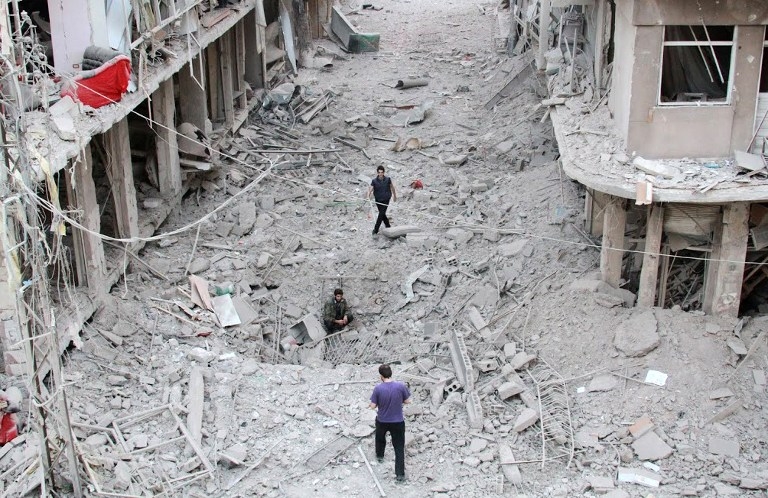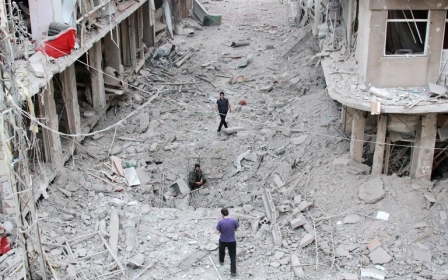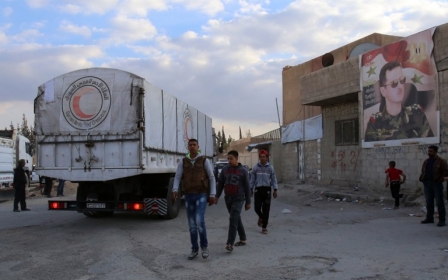Deal struck for rebels and civilians to quit Syria's Daraya

Rebels and Syria's army agreed a deal on Thursday to evacuate all residents and fighters from the besieged Damascus suburb of Daraya, a rebel leader said, ending one of the longest stand-offs in the five-year conflict.
Syria's army has surrounded rebels and civilians, and blocked food deliveries to Daraya since 2012, regularly bombing the area just four miles from President Bashar al-Assad's seat of power.
It was one of the first places to see peaceful protests against Assad's rule, and fought off repeated attempts to retake it by government forces as the conflict escalated into civil war.
"We reached agreement on the evacuation of all of the people of Daraya civilians and fighters," said Captain Abu Jamal, the head of the Liwa Shuda al-Islam, the biggest of two main rebel groups inside Daraya.
The evacuation would start on Friday and last for two or three days, he added.
Local council sources said around 5,000 people would be evacuated from the suburb that, before the civil war, was home to a quarter of a million people.
A military source told AFP that the army would enter Daraya, which has been under siege by pro-government forces for the past four years, after the evacuation from the rebel-held town.
A convoy of trucks carrying food reached Daraya in June, delivering supplies to civilians for the first time since late 2012.
In the last few weeks the army has escalated its bombardment of the rebel-held bastion, intensifying the use of barrel and incendiary bombs. Last week its only hospital was hit.
A plea for help
Middle East Eye published a passionate plea on Monday, 22 August, from 42 women living in and out of the besieged city, which urged the international community to intervene and halt the use of napalm on Daraya by pro-government forces.
The letter, headlined “On napalm and starvation: An open letter to the world from the women of Daraya,” chronicles how the Syrian government has besieged and bombed the city, including utilising napalm, a chemical weapon banned by international law. The writers outline its use against civilians, including a napalm bombing on a hospital that put it “completely out of action”.
On top of napalm attacks, the women also detail how the government has bombed and cut off access to basic necessities such as food and electricity for years, using “starvation as a weapon”.
“At the start of 2013, the regime cut Daraya off from all basic services – electricity, water for drinking and household use and communications. Throughout the siege, regime forces have used starvation as a weapon. Now, children and adults alike are suffering from severe malnutrition,” it read.
“For more than two months, the residents of Daraya have lived with daily, continuous bombing by regime forces. We have counted the weapons used: 1,805 barrel bombs and 729 high-explosive earth-to-earth missiles. These have set fire to agricultural land and the crops that represented the sole food source for the besieged residents of the city,” the letter added.
With these violations from the government, the women concluded, the international community must step up and stop Assad.
This article is available in French on Middle East Eye French edition.
Middle East Eye propose une couverture et une analyse indépendantes et incomparables du Moyen-Orient, de l’Afrique du Nord et d’autres régions du monde. Pour en savoir plus sur la reprise de ce contenu et les frais qui s’appliquent, veuillez remplir ce formulaire [en anglais]. Pour en savoir plus sur MEE, cliquez ici [en anglais].



